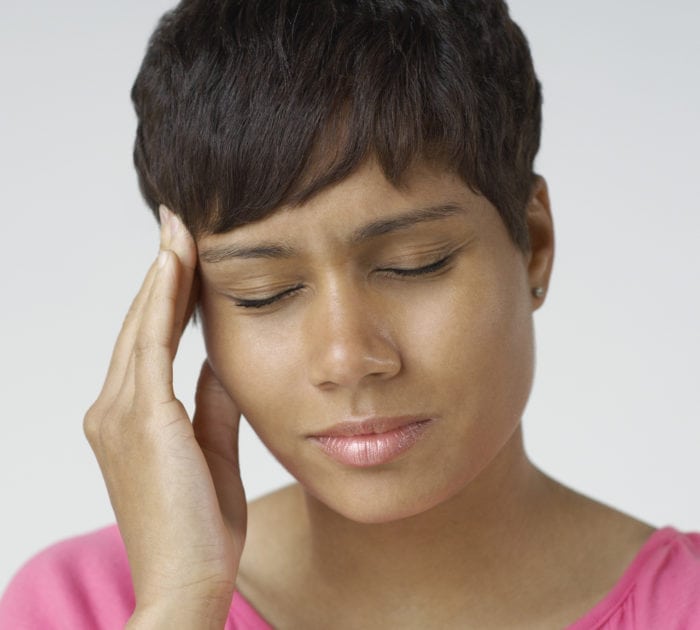Do you commonly wake up with headaches first thing in the morning?
 Chronic headaches can be difficult to cope with and often interfere with your daily life. What many patients do not realize is that their headaches may be the result of dental health concerns that may be treatable. If you experience regularly occurring headaches, especially first thing when you wake up, be sure to tell your dentist during your next routine exam.
Chronic headaches can be difficult to cope with and often interfere with your daily life. What many patients do not realize is that their headaches may be the result of dental health concerns that may be treatable. If you experience regularly occurring headaches, especially first thing when you wake up, be sure to tell your dentist during your next routine exam.
Headaches are a common symptom of teeth grinding and sleep apnea. Boise, ID LIFESmiles provide comprehensive oral health exams that include treatments for complex issues such as sleep apnea and bruxism.
Sleep Apnea and Headaches
Sleep apnea occurs when the airway becomes blocked during sleep. The muscles or soft tissue in the back of the throat collapse and block the airway limiting the flow of oxygen to the brain and body. Patients with obstructive sleep apnea commonly snore loudly or wake to gasp for air multiple times throughout the night.
The lack of oxygen flow to the brain causes headaches and increases the patient’s risk of many other systemic health issues. Patients who do not treat sleep apnea are more likely to develop cardiovascular issues and are at a higher risk for depression, diabetes, and strokes.
LIFESmiles offers oral sleep appliance therapy for patients who have been diagnosed with sleep apnea. Discreet, comfortable and easy to wear, oral appliances allow patients to breathe without obstruction for a full nights rest.
Headaches and Bruxism
Bruxism or teeth grinding is a habit that can begin in early development. Patients grind their upper and lower jaw together repeatedly, typically while asleep. Teeth grinding often goes undiagnosed until the habit begins damaging the structure of the teeth or function of the jaw.
Bruxism is commonly an underlying cause for TMD a complex issue that affects the health and comfort of the delicate jaw joint. Preventing the jaw from grinding can allow the jaw to rest and the muscles may be able to heal. A custom mouth guard can be fabricated by your dentist and worn during sleep to alleviate headaches associated with teeth grinding.
Frequently Asked Questions
Can stress alone trigger teeth grinding or TMD symptoms?
Yes, stress is a common trigger for both teeth grinding (bruxism) and TMD symptoms. Emotional tension often makes people clench or grind their teeth without realizing it, especially during sleep. Over time, this can strain the jaw muscles and joints, leading to pain, stiffness, and clicking sounds.
Are there long-term consequences of untreated teeth grinding?
If left untreated, chronic grinding can wear down tooth enamel, cause tooth fractures, increase tooth sensitivity, and damage dental restorations. It may also cause or worsen TMD, resulting in persistent jaw pain, headaches, and limited jaw movement. Early intervention helps prevent these complications.
Can a misaligned bite contribute to chronic headaches?
A misaligned bite can cause uneven pressure and muscle strain in your jaw, which may radiate upward and trigger chronic tension headaches. These types of headaches often start around the temples or behind the eyes and may worsen with jaw movement. Correcting the bite can relieve these symptoms over time.
Will treating bruxism help improve my sleep quality overall?
Yes, managing bruxism can improve sleep by reducing muscle tension, pain, and nighttime jaw movement. Nightguards or other dental appliances can help protect teeth and minimize grinding. Many patients report better rest and fewer sleep disruptions once bruxism is under control.
How long does it take to see relief after starting treatment for TMD?
Relief from TMD symptoms varies by person, but many start noticing improvement within a few weeks of consistent treatment. This may include jaw exercises, a bite guard, stress management, or dental adjustments. You may need ongoing care to maintain relief and prevent flare-ups.
Can dental-related headaches feel similar to migraines?
Yes, headaches caused by TMD or bite problems can mimic migraines. They often present as dull, aching pain on one or both sides of the head and may be accompanied by facial soreness or jaw tightness. A dental evaluation can help rule out oral causes.
Are there specific foods or habits that worsen TMD symptoms?
Yes, hard, chewy, or crunchy foods can aggravate the jaw joint and worsen symptoms. Avoid chewing gum, biting nails, or clenching during stress. Habits like resting your chin on your hand or poor posture can also strain your jaw and should be minimized.
